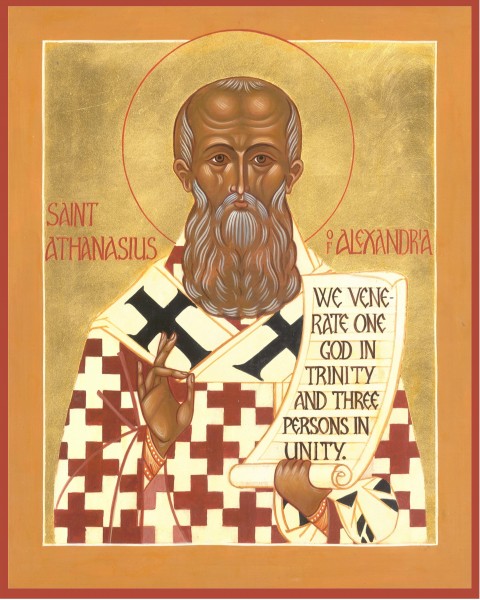Editor’s Note: This is a brief excerpt from the works of St. Athanasius. He is most famous for his classic work On The Incarnation, and his hagiography of St. Anthony the Great. This particular passage is from his larger work Against the Heathen (also called Against the Gentiles). You can read the entire thing here, but note that it is pretty long.
In the beginning wickedness did not exist. Nor indeed does it exist even now in those who are holy, nor does it in any way belong to their nature. But men later on began to contrive it and to elaborate it to their own hurt. Whence also they devised the invention of idols, treating what was not as though it were. For God Maker of all and King of all, that has His Being beyond all substance and human discovery, inasmuch as He is good and exceeding noble, made, through His own Word our Saviour Jesus Christ, the human race after His own image, and constituted man able to see and know realities by means of this assimilation to Himself, giving him also a conception and knowledge even of His own eternity, in order that, preserving his nature intact, he might not ever either depart from his idea of God, nor recoil from the communion of the holy ones; but having the grace of Him that gave it, having also God’s own power from the Word of the Father, he might rejoice and have fellowship with the Deity, living the life of immortality unharmed and truly blessed. For having nothing to hinder his knowledge of the Deity, he ever beholds, by his purity, the Image of the Father, God the Word, after Whose image he himself is made. He is awe-struck as he contemplates that Providence which through the Word extends to the universe, being raised above the things of sense and every bodily appearance, but cleaving to the divine and thought-perceived things in the heavens by the power of his mind. For when the mind of men does not hold converse with bodies, nor has mingled with it from without aught of their lust, but is wholly above them, dwelling with itself as it was made to begin with, then, transcending the things of sense and all things human, it is raised up on high; and seeing the Word, it sees in Him also the Father of the Word, taking pleasure in contemplating Him, and gaining renewal by its desire toward Him; exactly as the first of men created, the one who was named Adam in Hebrew, is described in the Holy Scriptures as having at the beginning had his mind to God-ward in a freedom unembarrassed by shame, and as associating with the holy ones in that contemplation of things perceived by the mind which he enjoyed in the place where he was—the place which the holy Moses called in figure a Garden. So purity of soul is sufficient of itself to reflect God, as the Lord also says, “Blessed are the pure in heart, for they shall see God.”









